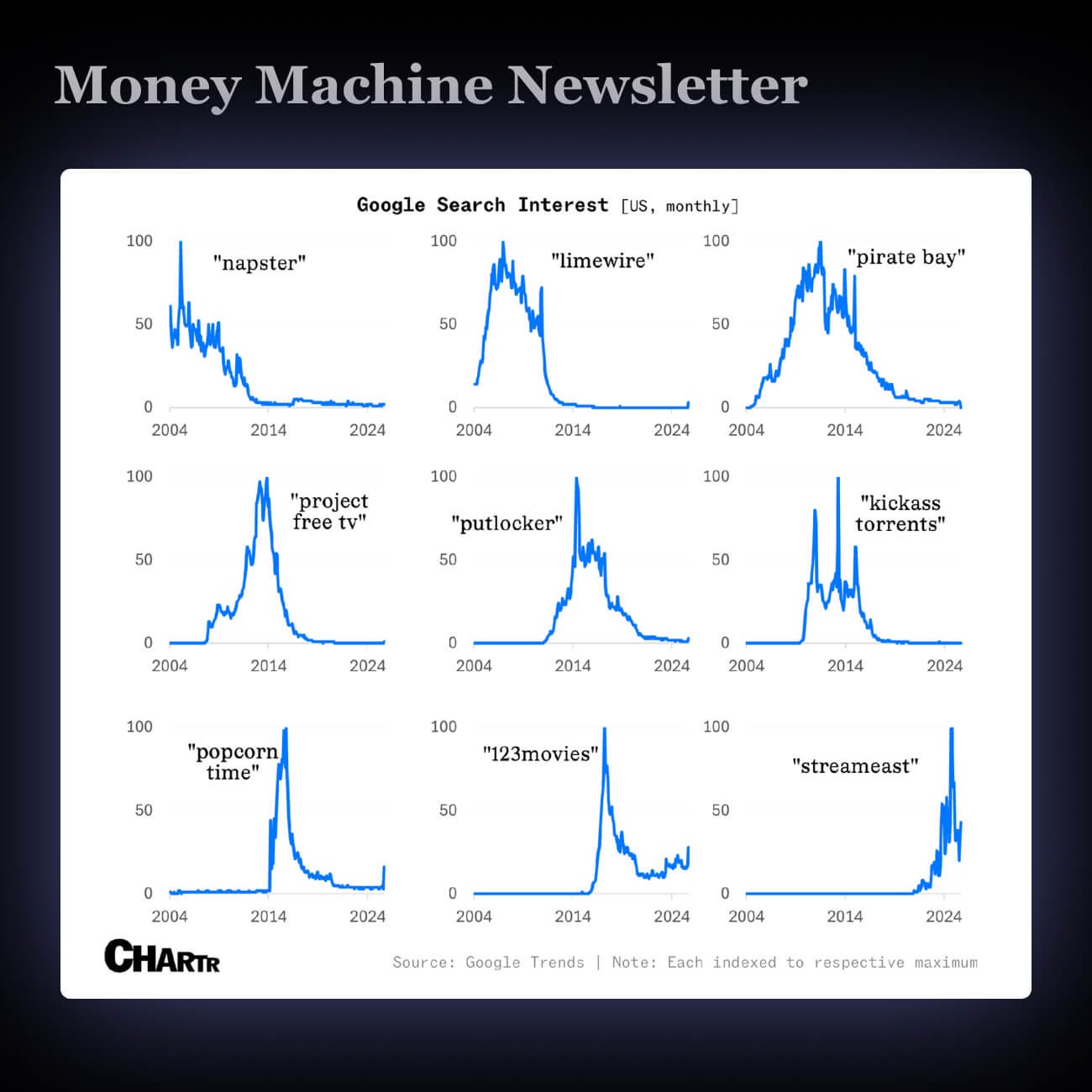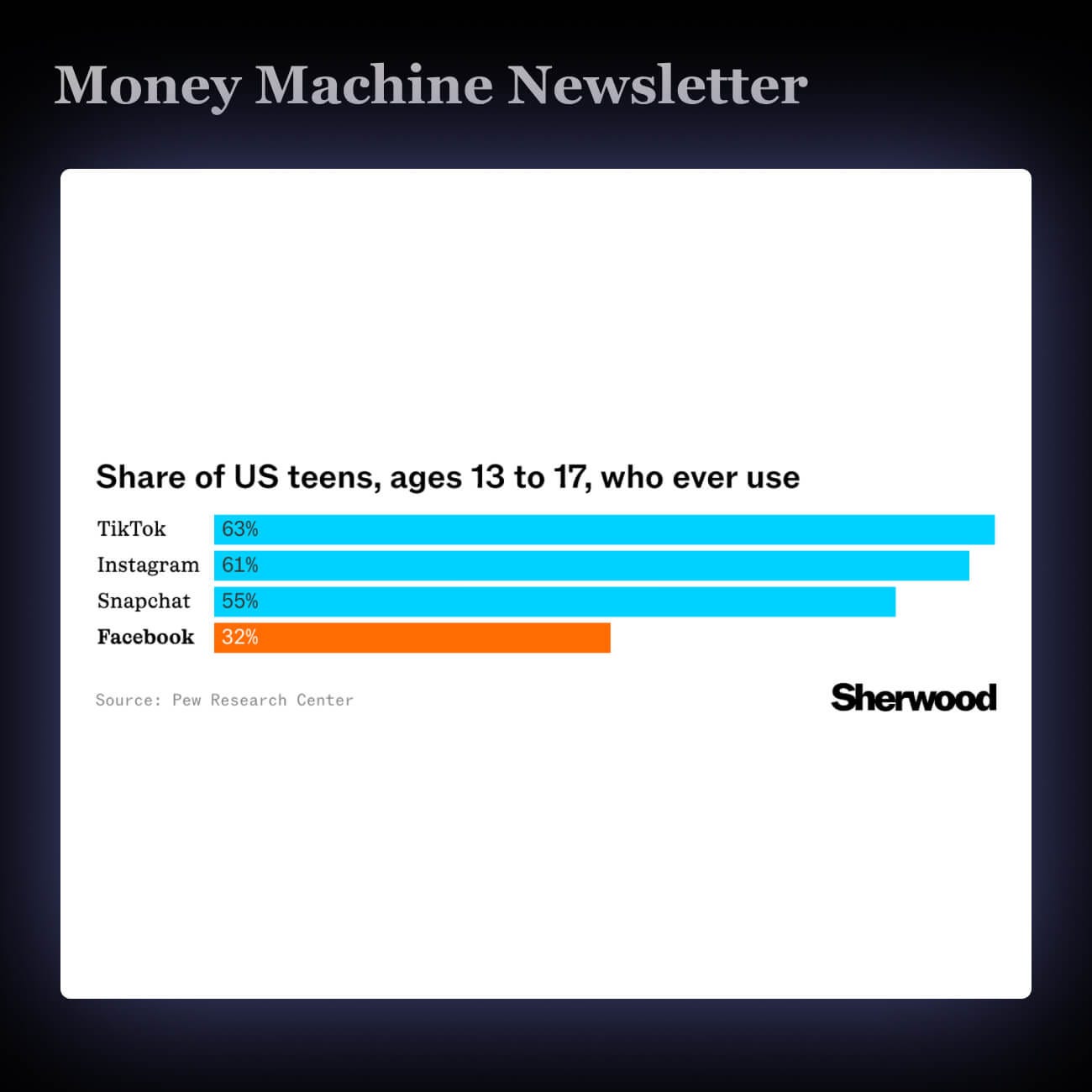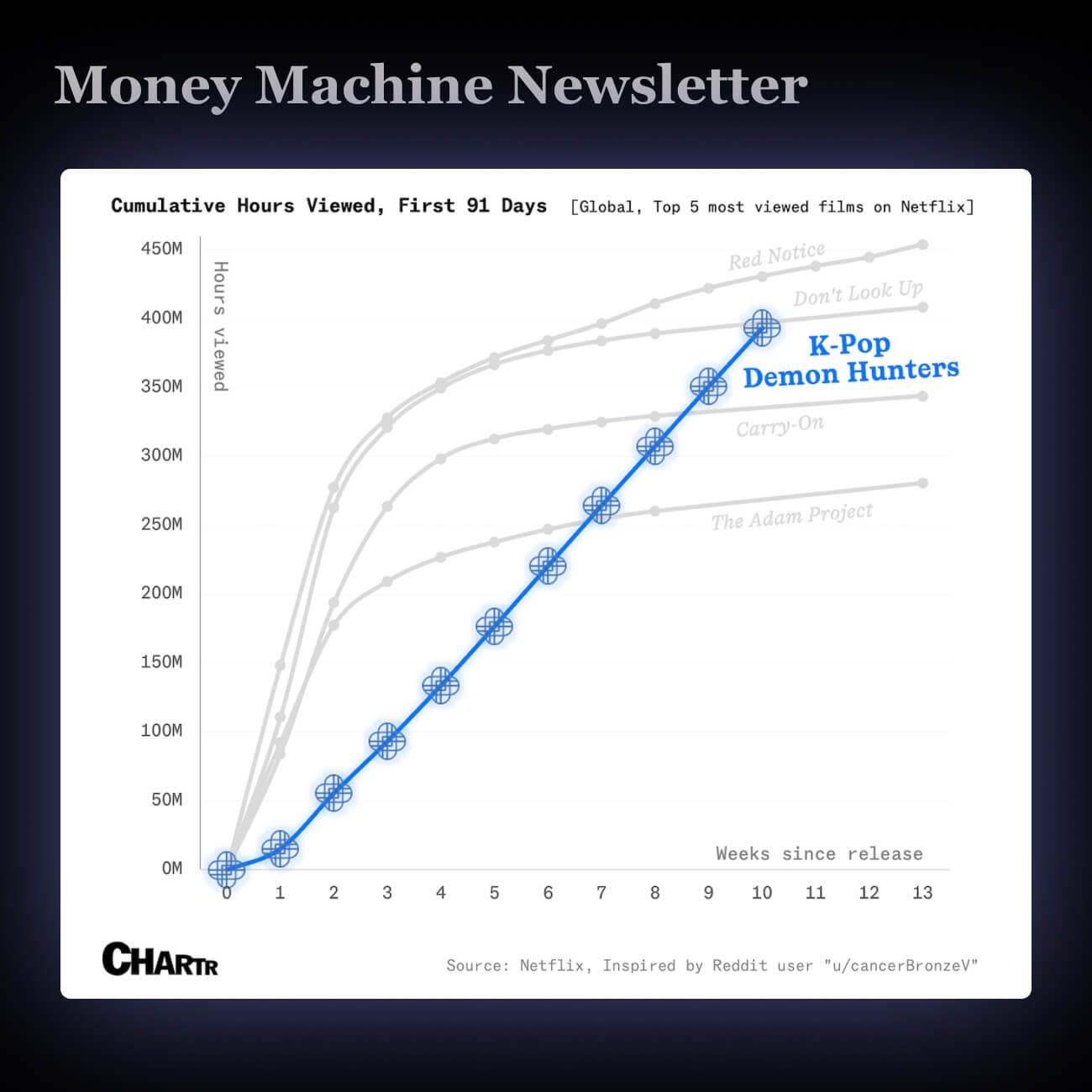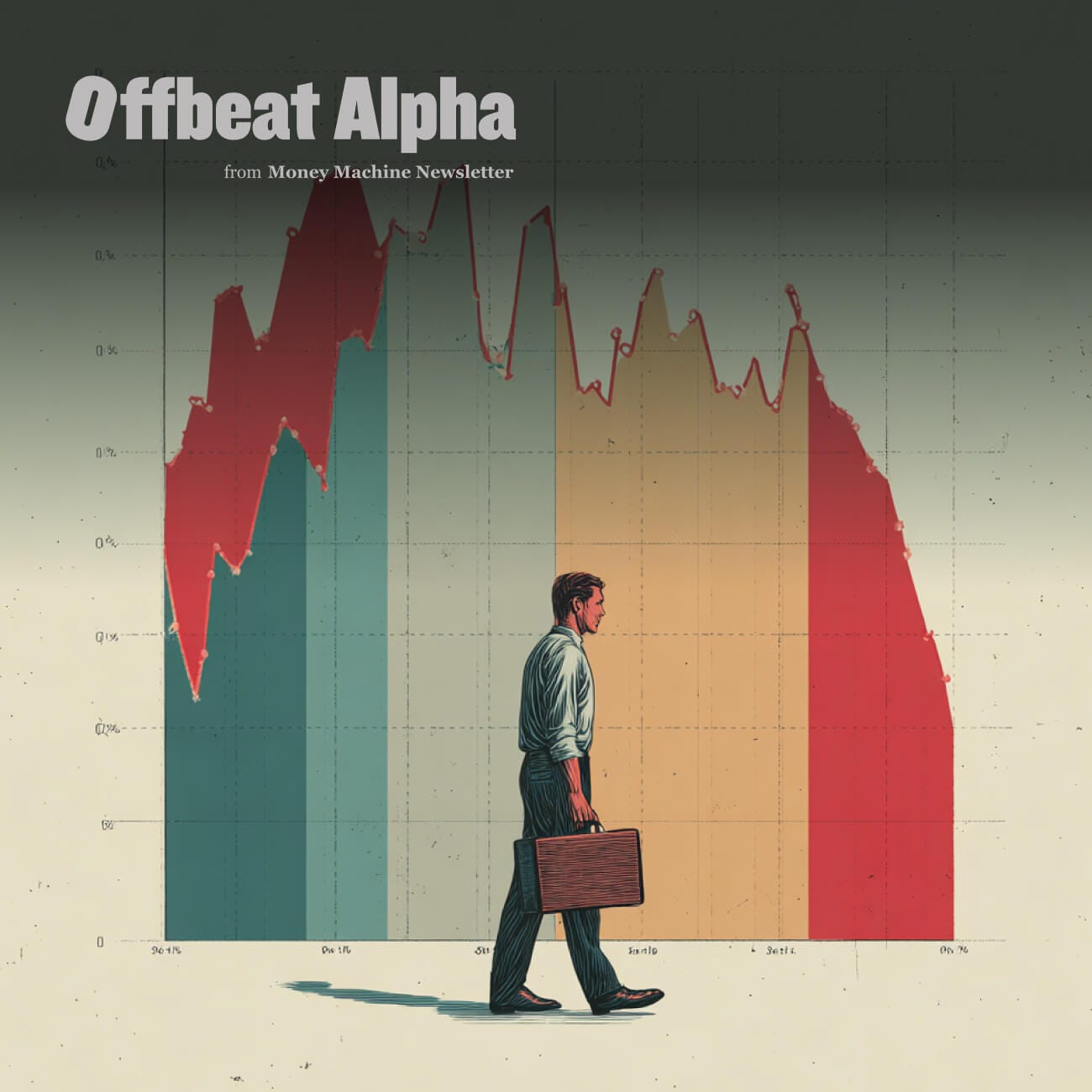📊 The Story Isn't Weak Jobs. It's Weak Data
Plus: COVID Wasn't Really About a Virus, And More
Today I’m featuring Money Machine Newsletter.
It’s designed to help you become a smarter, independent investor with two things:
Market-beating stocks in a 5-min read. Picked by elite traders. Delivered weekly to your inbox pre-market.
Market, investing, and business insights from insiders and experts outside the mainstream media.
You won’t find the same watered down stock picks like other services. Nor will you find the same regurgitated mainstream media information here.
I’ll let Money Machine Newsletter take it from here…
This week’s market, investing, and business insights from insiders and experts outside the mainstream media:
Fed policies based on numbers that don’t exist.
Obama said stop, Fauci said wait until he’s gone.
China builds high-speed rails, we build high-speed bureaucracy.
Pirates in Egypt arrested to protect profits in America.
And more. Let’s get to it!
Top Insights of the Week
1. 📊 The Story Isn’t Weak Jobs. It’s Weak Data
Every month we get a jobs report. Big headlines. Markets react. The Fed makes decisions. Then a month later? Oops, we got it wrong…
This past year, 1.2M jobs just disappeared in “revisions.” Gone. Poof. Those hot job reports everyone celebrated? They weren’t hot. They were cold, dressed up to look warm.
If any analyst in a job outside Washington screwed up numbers this badly, they’d be gone. But the Bureau of Labor Statistics? They just shrug and call them “revisions.”
You can’t run a $32T economy with broken data. It’s like trying to drive with a cracked windshield. Sure, you can see something, but good luck making the right turns. The Fed cuts rates based on this stuff. Your mortgage rate depends on it. Your job might too.
Meanwhile, smart money isn’t waiting around for government reports. They’re looking at credit card data. Payroll numbers. Payment processing. Real stuff, happening right now. They have better information than the people making the decisions. That’s backwards.
We could fix this tomorrow. Companies like ADP, AmEx, Stripe—they see the real economy every day. Anonymize the data, make it transparent, update it in real time. Instead we’re all flying blind, making trillion-dollar decisions based on numbers that change after the fact.
2. 🦠 COVID Wasn’t Really About a Virus
It was about trust. And trust broke… Officials knew things privately they wouldn’t say publicly. The lab leak? Real. But publicly? They called it conspiracy theory nonsense. That’s not science. That’s politics wearing a lab coat…
Look at gain-of-function research. They call it “studying viruses.” But it’s not studying—it’s making viruses worse. Making them spread faster. Hit harder. The idea was to get ready for pandemics. Instead, they caused one.
This wasn’t new to us. We called it out early. Former president Obama paused manipulation of viruses (gain-of-function research). Fauci didn’t agree. He waited for Obama’s term to end and reversed the pause.
Even our best labs have accidents. Dozens every year. Pretending otherwise is just pretending…
Then there’s the money. Pfizer and Moderna put $1.2B into a government foundation. No oversight. Government scientists getting royalty checks they don’t have to disclose. Public safety? Sure. But also private profits.
People aren’t “vaccine hesitant” because they hate science. They’re hesitant because they got lied to. Once you lie to people, they stop believing everything else you say. Every rule. Every recommendation. Every shot.
We prepared for the wrong pandemic. We got ready for a virus that spreads. We didn’t get ready for institutions that hide things. Next time won’t just test our medicine. It’ll test whether anyone trusts the people making decisions. And right now? That trust is gone.
3. 👨⚖️ Why China Builds and America Argues
China puts engineers in charge. Chinese President Xi Jinping’ background is in engineering (along with his predecessors). America puts lawyers in charge. In the 118th Congress, 30% of House members and 51% of Senators have law degrees. Everything else flows from there…
Engineers build things. They see a problem, they fix it. Need a bridge? Build a bridge. Need rail? Lay track. Need factories? Done. That’s why China can slap down high-speed rail and EV plants while we’re still arguing about permits.
Lawyers argue things. They see a problem, they debate it. Write rules. Protect rights. File motions. That’s why we’re great at free speech and terrible at building anything at a fast pace.
Dan Wang nails this in Breakneck. Chinese provinces compete like business units. Build more, get promoted. Simple. Effective. Until it isn’t. Now they’ve got empty cities and ghost towers everywhere. Turns out you can over-build.
We’ve got the opposite problem. We can’t build anything. But almost every project gets sued into oblivion. You can tie up a bridge in court for a decade, but you still can’t drive on it.
Both sides are half-right and half-wrong. China can engineer buildings but not trust. They can build cities but not fix their birth rate disaster. (Funny how that one-child policy backfired.). America can protect rights but not pour concrete. We can debate forever and get in our own way.
What happens when one side learns from the other? When America remembers how to build stuff? When China figures out why rights matter? At the end of the day it all comes down to balance. Right now America is tipped way too far to the law side of things versus getting out of our own way and BUILDING.
1. 🏴☠️ The Short Shelf Lives Of Piracy Sites

Streameast, the world’s biggest illegal sports streaming site, was shut down. It drew 1.6B visits last year—even NBA star LeBron James was spotted using it. Two operators were arrested in Egypt.
Piracy isn’t gone. It’s whack-a-mole. Kill one site, a dozen more pop up. Demand for free sports streams stays high, especially around NFL and MLB seasons.
This fight isn’t over. If people keep dodging subscriptions, leagues and broadcasters lose billions—and that cost eventually lands on paying fans.
2. 👀 Meta Is Reviving the Nostalgic “Poke” Feature to Win Back Young Users

Meta is dusting off Facebook’s old “poke” feature. They’ve added counters, a button, and a page to track who poked who.
It’s a play to win back teens. Only 32% of US teens use Facebook, while TikTok, Instagram, and Snapchat dominate.
If it works, pokes could become the new streaks. If not, it’s another sign Facebook is aging out while rivals keep the young crowd hooked.
3. 😳 “K-Pop Demon Hunters” Is Hunting Down Netflix’s Most Popular Films

A korean-inspired animated musical, k-pop demon hunters, just became netflix’s most watched film ever — 236M views in two months, beating Red Notice’s 231M.
The movie isn’t slowing down. Kids are watching it 6–8 times each, driving steady weekly growth. Netflix also scored its first box office #1 with a sing-along release.
This isn’t just about streaming. Netflix owns the merch rights, is eyeing oscars, and is already planning a sequel. It’s turning one hit into a multi-revenue franchise.
Join 6,000+ self-directed investors who have already placed themselves on the path to greater wealth—potentially making $500, $1,000, $2,000, $3,000, or more every month with Money Machine Newsletter’s trade ideas.
See you in there!
Best,
Money Machine Newsletter
Nothing in this email is intended to serve as financial advice. Do your own research.




